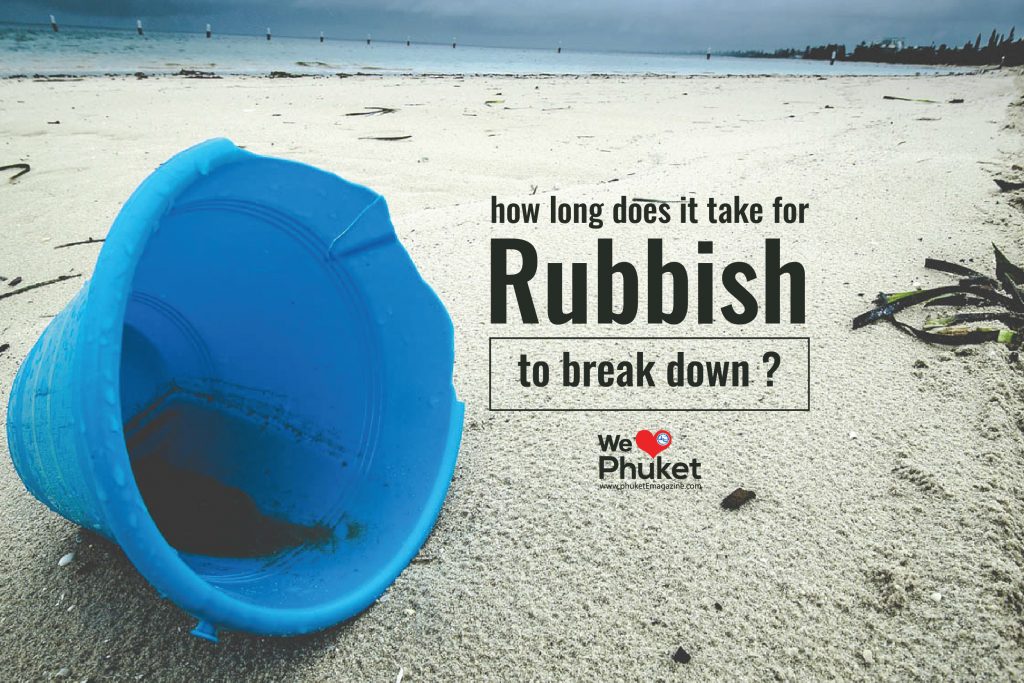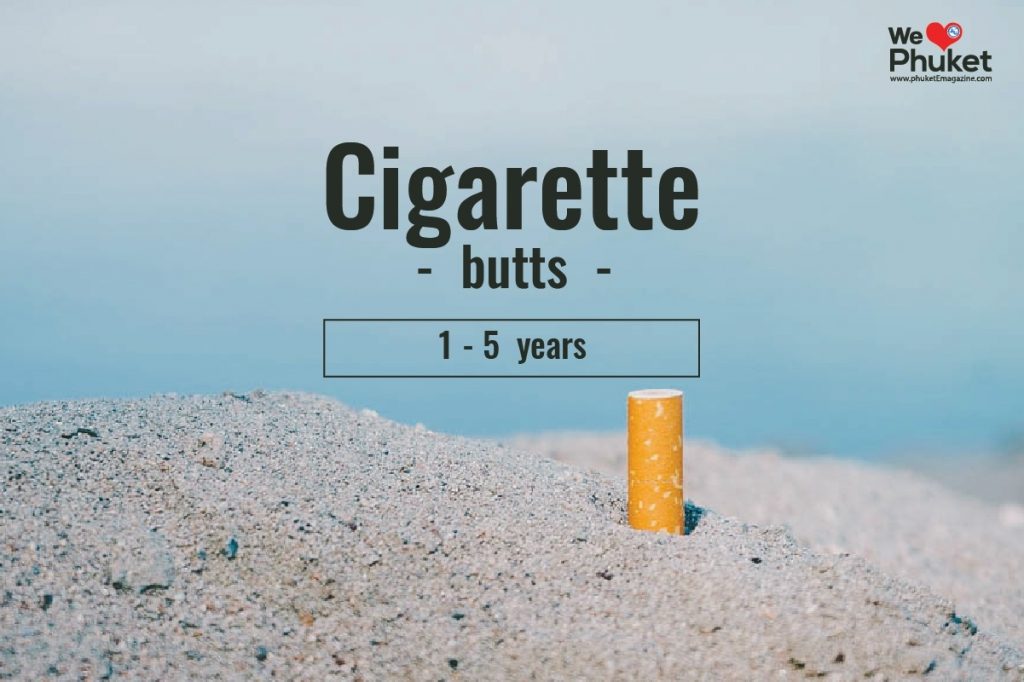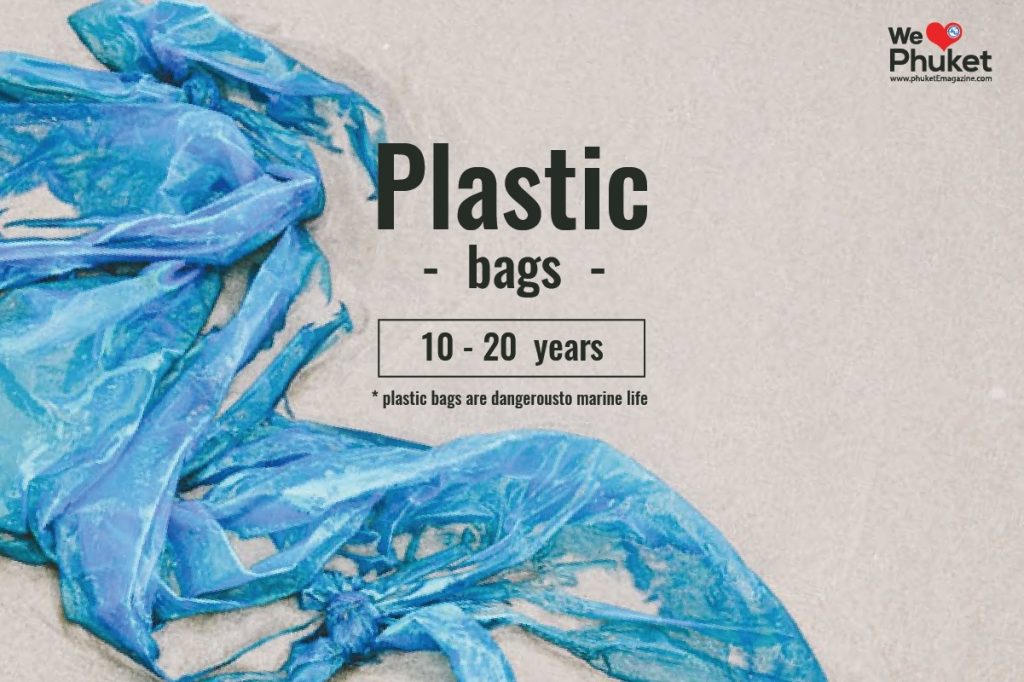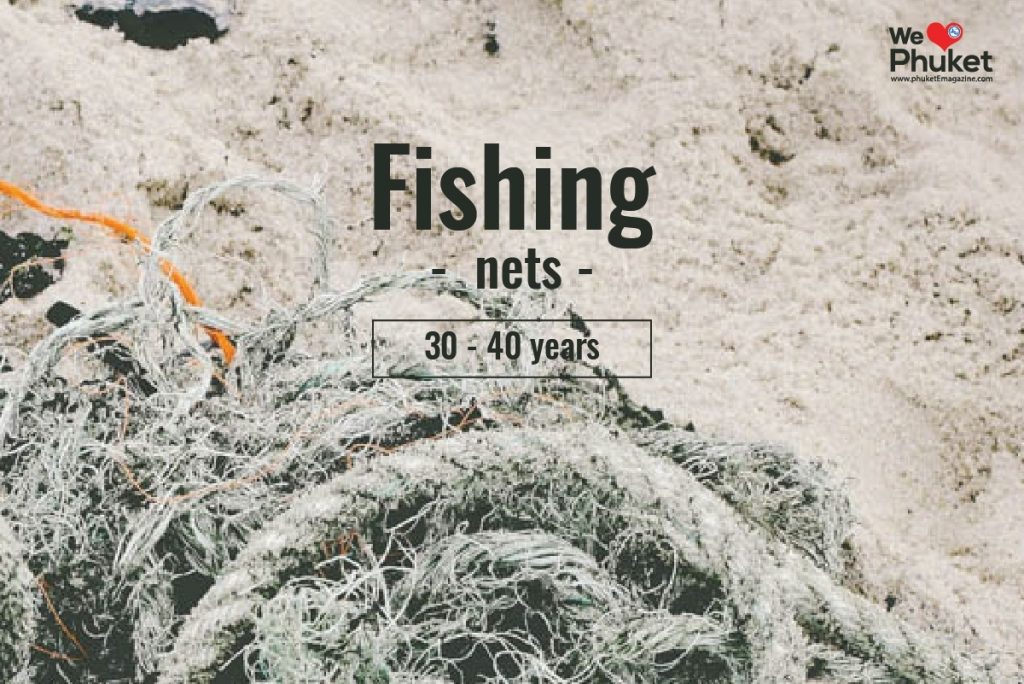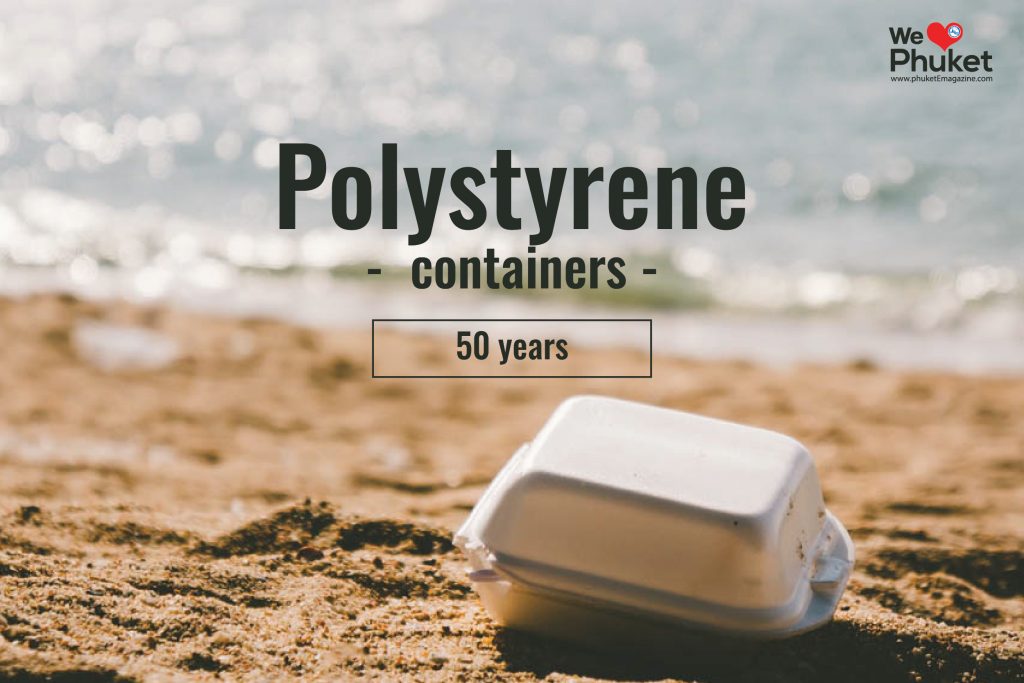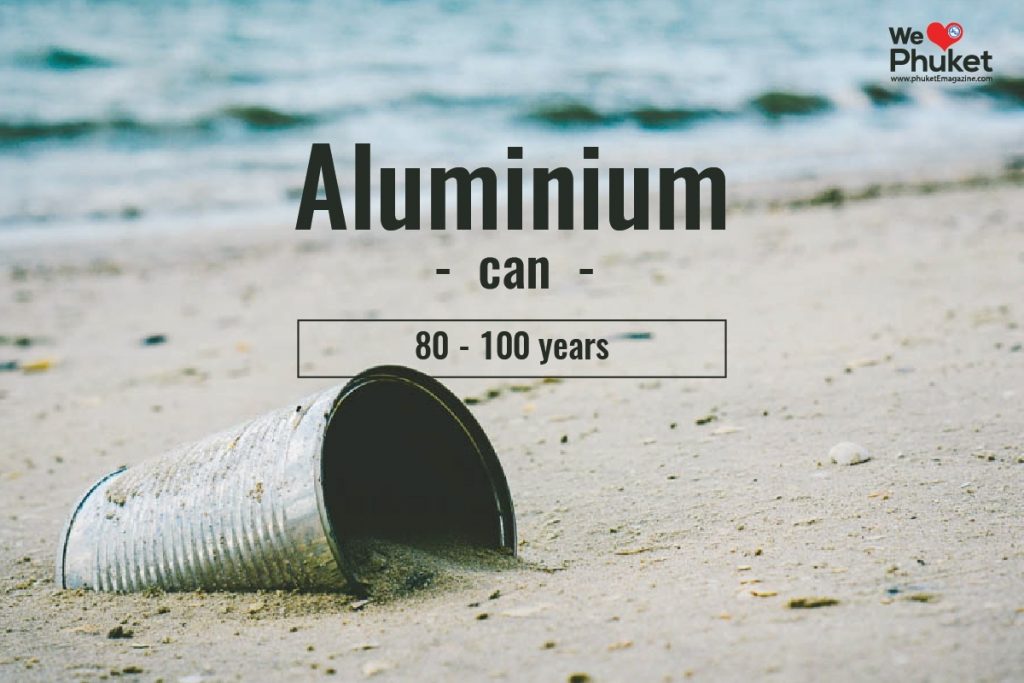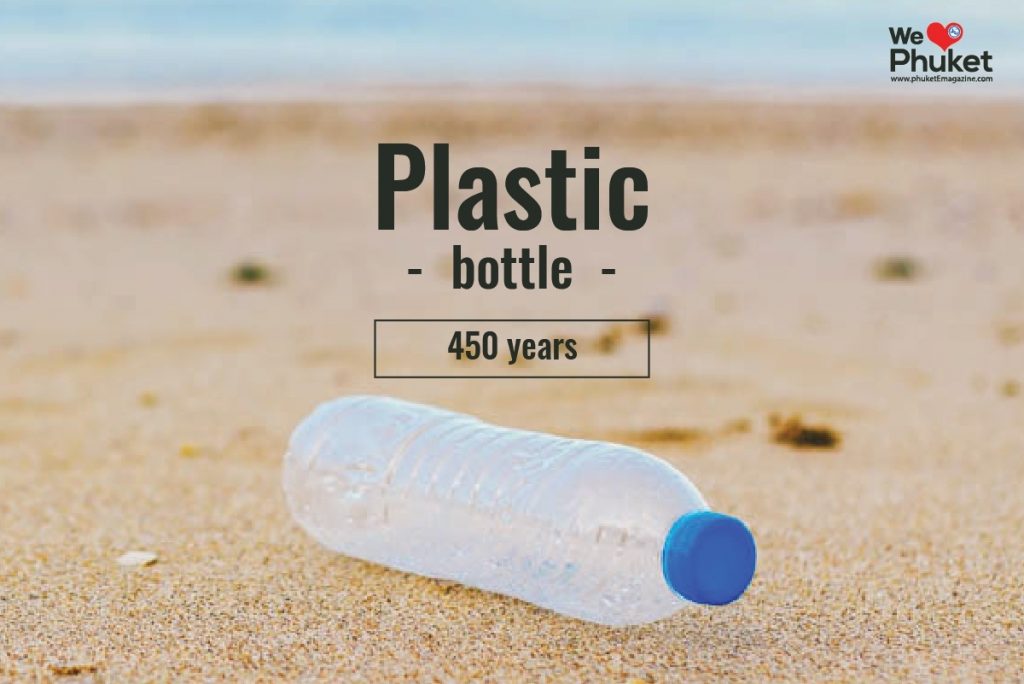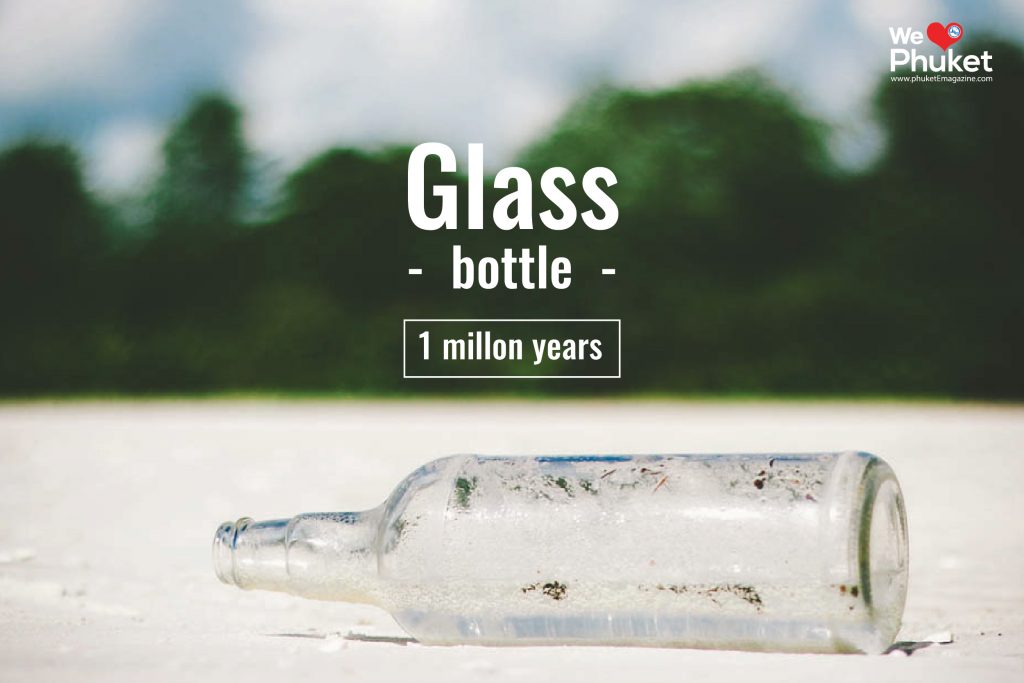Plastic bottles, beer cans, hundreds of cigarette butts – all floating in the sea and getting washed up on our shores; is this what we really want our children to see when they go down to the beach during their school break? Like it or not we’re facing a terrible garbage problem in Phuket. You can even see sea turtles’ deaths caused by the plastic bags and even hermit crabs living in plastic homes rather than natural seashells on social media. Some people think that just a little bit of garbage couldn’t do much harm but if everyone thought that way, the problem would grow and grow to such an extent that it’d turn into a real killer. Some rubbish takes more than a person’s lifetime to break down. Let’s have a look at just how long it takes for rubbish to decompose and remind ourselves that every time we leave the beach we should leave behind beauty not garbage.
Cigarette Butts
Even though the Thai government banned cigarettes from 20 popular tourist beaches in November 2017 with a maximum fine of 100,000 baht, cigarette butts are still the number one item on the beach rubbish list. Many smokers think that cigarette butts are small and easy to decompose whereas in fact their small size makes it harder to dispose of them. And each cigarette butt takes about 1-5 years to break down. Cigarettes on the beach are not only illegal but they also harm both humans and nature.
Plastic Bags
Many folks bring food wrapped in plastic bags to picnic on the beach thus making them one of the top commonly found and unwelcome seaside garbage items. When these plastic bags are in the ocean they resemble jellyfish and seaweed and of course some marine life mistakes them for food and swallows them. Thus, plastic bags are some of the most murderous items in the ocean and seas: the answer is simple – if you want to save marine life take your plastic items back home with you!
Fishing Nets
Fishing nets are also another commonly found pollutant along Phuket beaches due to the busy fishing businesses in the area; fishing nets take about 30-40 years to decompose and sometimes marine creatures become hopelessly trapped in them and suffocate or starve to death as a result.
Polystyrene Containers
Grilled chicken, meatballs, somtam, and grilled fish are the most commonly found dishes served up on the beach by vendors and are usually packaged in white polystyrene boxes, plates, and bowls for sellers’ convenience as they don’t have to clean them to serve food up again. Leaving the containers in local garbage bins is fine (providing there is a regular garbage collection) but did you know that it takes up to 50 years for polystyrene to break down? Therefore uncollected polystyrene is also a deadly factor along the beach.
Aluminum Cans
It hard to resist having a cold beer while enjoying sea views. This is the perfect thing to do when you are on the beach. Still, an overflow of aluminum cans is easily capable of ruining an ecological system seeing that they take 80-100 years to decompose – more than a person’s lifetime!
Plastic Bottles
Astoundingly, it takes no less than 450 years for a plastic bottle to break down and decompose! Yes, more than five lifetimes… The good news is these plastic bottles can be recycled if we place them in recycle bins and correctly separate them. Still, many people carry these plastic bottles to the beach and leave them there. Don’t be one of them!
Glass
Glass is another type of rubbish that is as often found as much as plastic bottles on the beach. Broken glass/ small pieces of glass are dangerous and take a long time to decompose. That is why glass needs to be reused and recycled. We should not leave glass behind on the beach.

 ไทย
ไทย